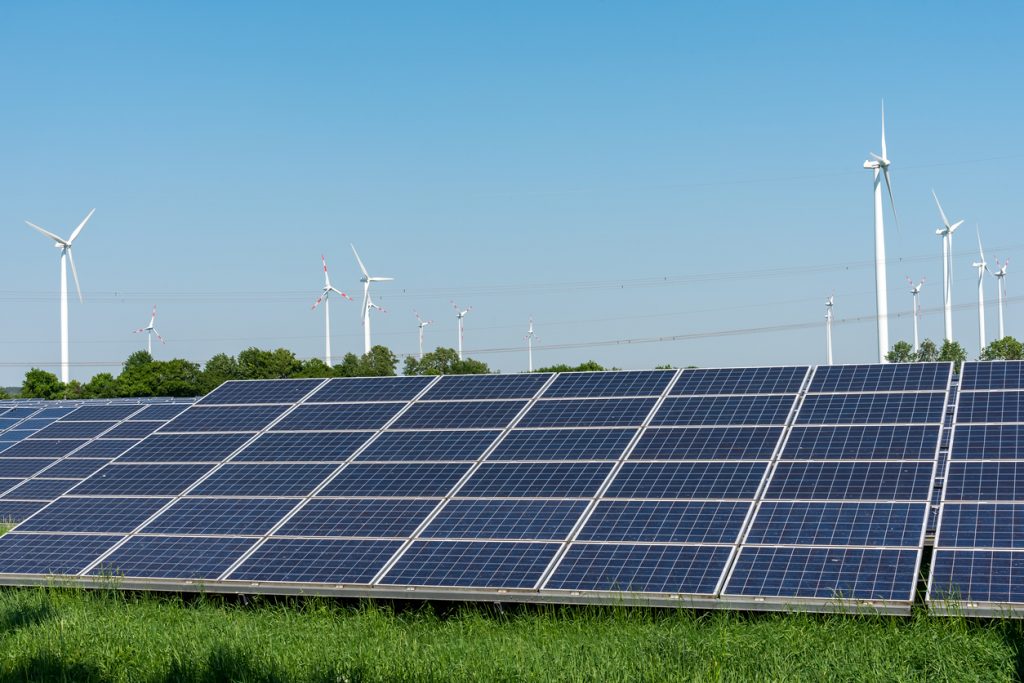 Solar panels and wind power plants seen in Germany
Solar panels and wind power plants seen in GermanyReprinted from Energywire with permission from E&E News. Copyright 2019. E&E provides essential news for energy and environment professionals at www.eenews.net. For the original story and more news click here.
Witnesses urged House Science, Space and Technology lawmakers during a hearing yesterday to focus on batteries and the grid when considering ways to promote renewable power.
“Growing the capacity for storage on the grid is increasingly critical with the rise of intermittent resources,” said Rep. Sean Casten (D-Ill.). It’s “going to be a critical part of the way we make sure the lights stay on.”
Peter Green, deputy lab director at the National Renewable Energy Laboratory, agreed with Casten, pointing out the “significant research that needs to be done for energy storage.”
Green used current lithium batteries as an example, noting that cobalt is currently needed for the production of lithium batteries.
However, there is not enough cobalt to provide the number of lithium batteries needed to make wind and solar energy a primary source of power.
In addition to the need for better batteries, Abigail Hopper, CEO of the Solar Energy Industries Association, stressed the need for improved energy infrastructure for the country to be able to produce 20% of its total energy from solar alone by 2030.
“Easing grid integration should continue to be a top priority,” she said. “The grid must be able to handle this intermittent and variable generation, and investing in infrastructure upgrades are necessary to hit these targets.”
Tom Kiernan, president and CEO of the American Wind Energy Association, supported an increased focus on “grid enhancements.”
“You have different grids throughout the country, and they don’t often connect well,” he said. “Actually, getting the different grid operators to plan together where they might collectively build transmission lines across these grids is also a really important way to advance the grid.”
Parties on different tracks
While Democrats on the committee focused their questions on the best places for Congress to invest, the Republicans were more concerned that investment could hinder the advancement of renewable technologies.
“We should only be funding research to create the foundation of new technologies, not using tax dollars for the whole life cycle to commercialization,” said Rep. Brian Babin (R-Texas), echoing sentiments espoused by Kenny Stein, director of policy for the conservative Institute for Energy Research.
In his testimony, Stein warned the lawmakers that “federal support should not go to projects that private interests already have a clear incentive to develop.”
Stein added that solar and wind energy as technologies are so mature that if they still require federal funding to be marketable, “Is there ever going to be a point where enough is enough?”
Rep. Haley Stevens (D-Mich.) noted the different questioning tacks that were taken by members of the different parties and used it as an opportunity to be grateful for the new, “robust majority” Democrats have in the House.
“I am so thrilled to see that our Democratic majority is here today engaging in this discussion in a way that is quite meaningful,” she said, “kudos to our chairman.”


